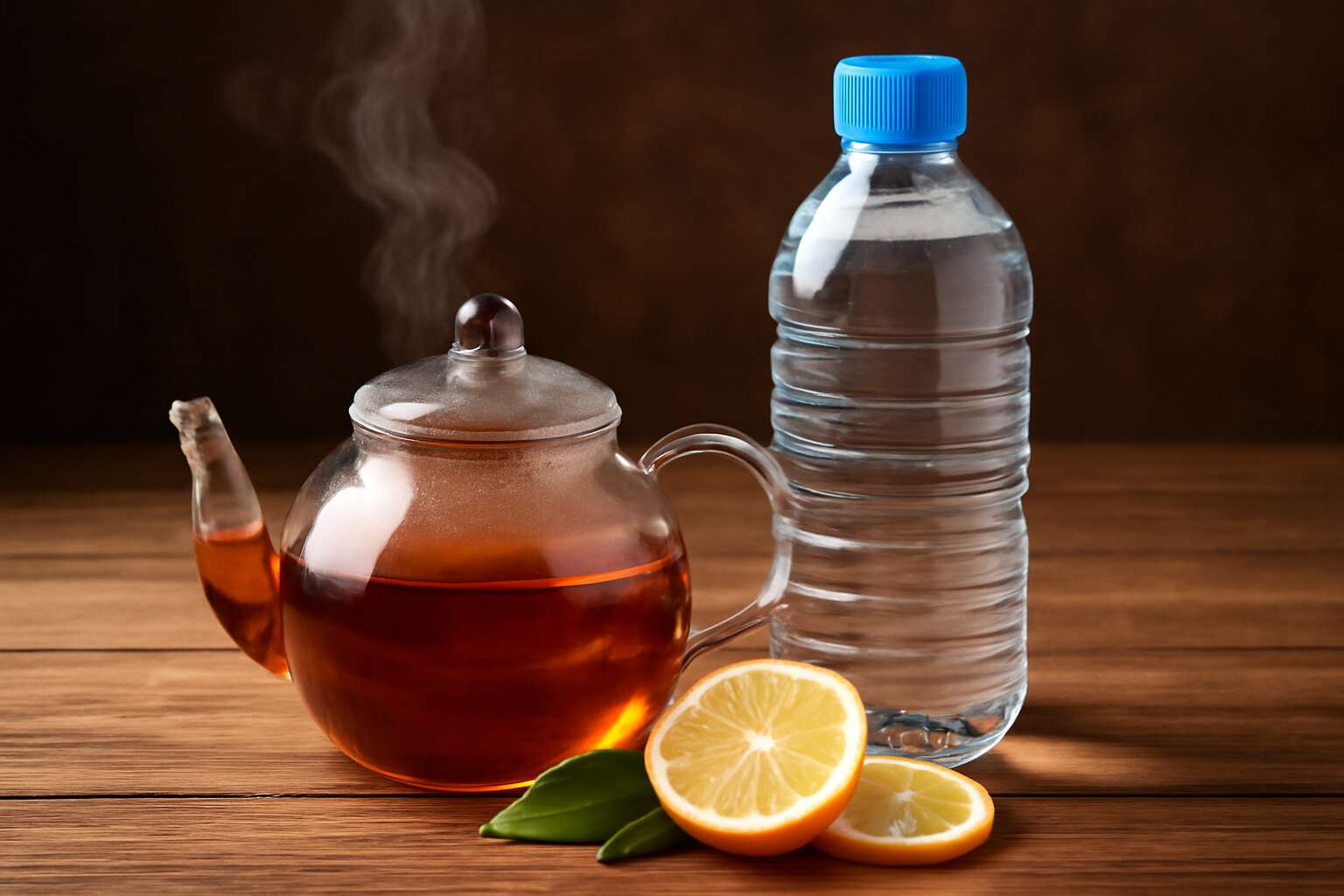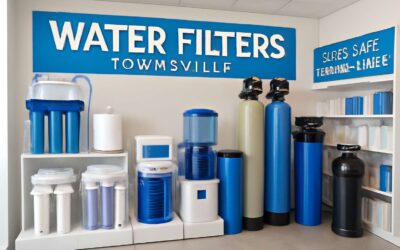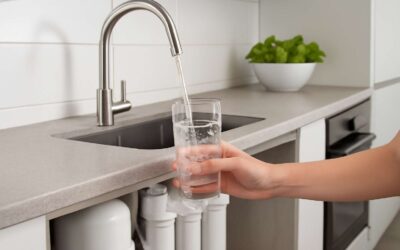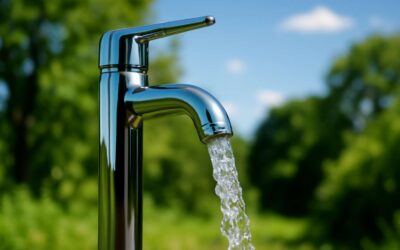Understanding Bottled Water and Its Types
What Is Bottled Water?
When it comes to brewing the perfect cuppa, many wonder: can you use bottled water for tea? The answer isn’t a simple yes or no, but understanding bottled water and its types can shed some light. Bottled water is essentially water that’s been packaged for convenience, often sourced from springs, wells, or purified supplies. It offers a range of options, from mineral-rich varieties to purified and spring water—each with unique mineral profiles that can influence your tea’s flavor.
Knowing what kind of bottled water you’re pouring into your teapot makes all the difference. For instance, mineral water with high calcium content might add an unintended twist to your brew, while purified water tends to be a neutral canvas. Here’s a quick overview of common bottled water types:
- Spring Water: Sourced from natural springs, often with a clean, crisp taste.
- Mineral Water: Rich in minerals, which can enhance or alter flavor profiles—sometimes in unexpected ways.
- Purified Water: Filtered and stripped of impurities, making it a versatile choice for tea enthusiasts.
Understanding these distinctions helps you decide whether bottled water is suitable for your tea ritual, especially if you’re chasing that perfect brew in South Africa’s vibrant culinary scene.
Different Types of Bottled Water
In the shadowed corners of the culinary world, water is often overlooked as a silent partner in brewing perfection. Yet, when pondering whether you can use bottled water for tea, the choice becomes a subtle dance of mineral alchemy and purity. Each bottle conceals a story—spring water whispers from the earth’s depths, mineral water bears the secrets of ancient deposits, and purified water emerges as a blank canvas, stripped of impurities. These distinctions shape not just the clarity of your brew, but its very soul.
Understanding the different types of bottled water is crucial for any tea aficionado. For instance, mineral water’s high mineral content can introduce unexpected flavors, transforming a simple cup into a sensory journey. Conversely, purified water offers neutrality, allowing the true essence of your tea leaves to shine through. Sometimes, the right choice hinges on knowing what lies beneath the surface—whether it’s the crisp purity of spring water or the mineral-rich depths of a specialized bottled variety.
Mineral vs. Purified Water for Tea
When contemplating whether you can use bottled water for tea, understanding the nuances of different bottled water types is essential. Mineral water, often sourced from natural springs, contains a rich tapestry of minerals that can subtly influence the flavor profile of your brew. These minerals—calcium, magnesium, and bicarbonates—can add complexity but also risk overshadowing the delicate aroma of high-quality tea leaves.
In contrast, purified water is stripped of impurities and minerals, making it a versatile choice for brewing. Its neutrality allows the true essence of your tea to shine, free from any mineral interference. For those seeking a clean, crisp taste, purified water often emerges as the preferred option when questioning whether you can use bottled water for tea.
Some tea enthusiasts prefer to experiment with mineral water’s unique qualities, while others advocate for the purity of bottled purified water. Ultimately, the decision hinges on your desired flavor outcome and the specific characteristics of the bottled water at hand.
The Impact of Water Quality on Tea Flavor
Mineral Content and Its Effect
Water, the silent specter in every brew, wields an unseen influence that can elevate or distort the delicate symphony of flavors in your tea. When pondering can you use bottled water for tea, one must consider the mineral content lurking beneath the surface. Mineral-rich waters can imbue your tea with a complexity that borders on the mystical, yet they can also overpower the subtle notes that define a fine brew.
The impact of water quality on tea flavor is profound — it’s the canvas upon which the artist’s brush paints. Mineral content, such as calcium and magnesium levels, can alter the tea’s aroma and mouthfeel, either enhancing or masking its innate character. For a pristine cup, the water’s purity and mineral balance must be just right. Sometimes, a simple switch to purified bottled water can make the difference between a flat, lifeless infusion and a vibrant, enchanting elixir.
Understanding the mineral content of bottled water can help you decide if it’s suitable for tea. Consider the following:
- Low mineral content ensures clarity of flavor, allowing the tea’s true essence to shine.
- High mineral levels might introduce a metallic aftertaste, disrupting the brew’s harmony.
- Filtered or purified waters often strike the perfect balance, unveiling the tea’s hidden depths.
In the end, the choice of water isn’t just about purity; it’s about unlocking the full, dark poetry of each cup. Can you use bottled water for tea? The answer hinges on the water’s mineral soul — a haunting reminder that even the purest waters carry secrets waiting to be discovered.
Chlorine and Chloramine Presence
The presence of chlorine and chloramine in your water can turn a delicate tea experience into an unintended chemistry experiment. These disinfectants, commonly used to treat municipal water supplies, are designed to eliminate bacteria but can leave an unfortunate, lingering taste—think of it as an uninvited guest at your tea party. When pondering can you use bottled water for tea, it’s vital to consider whether these chemicals are present, as they can significantly influence flavor and aroma.
While some bottled waters are free from chlorine and chloramine, others may contain these substances, especially if they are sourced from municipal supplies. To avoid a flat or chemically tainted brew, opt for bottled water labeled as “purified” or “filtered,” which often have these chemicals removed through advanced treatment processes. If you’re uncertain, a simple test with a water purifier or a few minutes of boiling can diminish their impact—though nothing beats choosing a water source that’s inherently free of these additives.
To better understand how water quality impacts tea flavor, consider this:
- Chlorine can impart a sharp, medicinal note that masks the subtle floral and fruity notes of fine teas.
- Chloramine, being more stable, can leave a lingering bitterness that’s hard to mask once it infiltrates the brew.
In South Africa, where tap water often undergoes chlorination, selecting the right bottled water becomes more than a matter of convenience—it’s an art form. Can you use bottled water for tea? Absolutely, but only if you choose the appropriate type that ensures your tea’s true essence is preserved, untainted by chemical interference. After all, the true soul of a cup lies not just in the tea leaves but in the purity of the water that brings them to life.
pH Levels and Taste Balance
The quality of water used in tea brewing is often an unsung hero, shaping the aroma and taste in ways that can surprise even seasoned connoisseurs. pH levels play a crucial role in this delicate dance. Water that leans too acidic or too alkaline can throw off the harmony of flavors, making the tea taste dull or overly sharp. For example, slightly alkaline water can enhance the brightness of floral notes, while overly acidic water might obscure subtle fruity undertones. When pondering can you use bottled water for tea, understanding its pH balance becomes essential, as it influences both the taste and the overall experience.
In South Africa, where tap water can vary in mineral content and pH, selecting the right bottled water is akin to choosing a trusted companion for a journey. The perfect water should complement rather than compete with the tea leaves—preserving their natural essence. An ideal bottled water for tea will maintain a neutral or slightly alkaline pH, ensuring the flavor remains balanced and vibrant. The interplay between water pH and taste balance is a subtle art, where even minor adjustments can reveal or conceal the tea’s true character.
Advantages of Using Bottled Water for Tea
Consistency in Taste
In the delicate dance of flavor and aroma, consistency becomes the silent maestro guiding each cup of tea. Using bottled water for tea offers a remarkable advantage—ensuring every brew maintains its signature taste. Unlike tap water, which can vary in mineral content and impurities, bottled water provides a controlled environment that preserves the purity of your tea’s essence.
Imagine the luxury of a perfect infusion, where subtle nuances are preserved without interference. This consistency elevates the tea experience, allowing the natural qualities of the tea leaves to shine through. Whether you prefer a robust black or a delicate green, the choice of bottled water can make all the difference.
In fact, many connoisseurs swear by it—favoring bottled water for tea to achieve a harmonious balance and purity of flavor. When exploring whether you can use bottled water for tea, consider that each sip becomes an ode to clarity and refinement. It’s an elegant solution for those who seek perfection in every cup, born from the assurance of consistent taste and quality.
Convenience and Portability
In the bustling world of tea lovers, convenience and portability often make all the difference. Using bottled water for tea transforms the ritual into a seamless experience, whether you’re at home, in the office, or on an outdoor adventure. The portability of bottled water means you can enjoy a perfectly brewed cup anytime, anywhere, without the fuss of measuring or worrying about water quality.
Imagine carrying a sleek bottle that’s ready to turn any moment into a calming tea break. Perfectly balanced in temperature and flavor, bottled water ensures your tea remains pure and delightful, no matter where your day takes you. It’s a simple yet effective way to elevate your tea-drinking experience, making it more accessible and enjoyable. So, when pondering whether you can use bottled water for tea, the answer is a resounding yes—bringing both ease and excellence to every sip.
Reduction of Unwanted Flavors
Using bottled water for tea offers a clear advantage: it reduces unwanted flavors that can interfere with the natural taste of your brew. Tap water often contains chemicals or minerals that can create off-putting bitterness or metallic notes. Bottled water, especially purified options, provides a cleaner, more neutral base, allowing the true essence of your tea to shine through. This is particularly important for delicate teas like green or white varieties, where subtle nuances matter.
Many tea enthusiasts swear by bottled water because it ensures consistency. When you ask yourself, “can you use bottled water for tea,” the answer is a definite yes. It helps maintain a pure flavor profile, free from the unpredictable elements found in other water sources. For those seeking an optimal tea experience, choosing the right bottled water can make all the difference.
Potential Concerns When Using Bottled Water for Tea
Cost Comparison with Tap Water
When pondering the question of whether you can use bottled water for tea, it’s crucial to consider more than just convenience. While bottled water offers a tidy, portable option, potential concerns arise regarding its mineral content and overall purity. Some bottled waters contain minerals or additives that could subtly alter the flavor profile of your tea, leading to a taste that’s less balanced or unexpectedly metallic.
Another aspect to weigh is the cost comparison with tap water. Although bottled water might seem like a straightforward choice, it often carries a hefty price tag that adds up over time. For those mindful of consumption, understanding the long-term expense versus the simplicity of tap water can be eye-opening. An easy way to assess this is by considering the following:
- Initial purchase and ongoing replacement costs
- Environmental impact of plastic waste
- Possible differences in mineral content affecting taste
Ultimately, the decision hinges on your priorities—whether you value purity and convenience over cost and sustainability. But it’s worth noting that, in many cases, tap water can be just as effective for brewing a satisfying cup of tea, provided it’s clean and properly filtered. The debate about can you use bottled water for tea is less about right or wrong and more about understanding what your specific tea preferences and lifestyle demand.
Environmental Impact of Bottled Water
While the convenience of bottled water is undeniable, its environmental footprint often remains overlooked. In a world where plastic waste has become an ecological crisis, the question of whether you can use bottled water for tea extends beyond mere taste considerations. Each year, millions of plastic bottles flood landfills and oceans, contributing to pollution that threatens marine life and ecosystems. When contemplating the use of bottled water for tea, it’s essential to weigh the environmental repercussions—particularly if the water is consumed frequently. The production, transportation, and disposal of bottled water are resource-intensive processes that leave a significant carbon footprint.
Moreover, the durability of bottled water’s environmental impact highlights the importance of sustainable choices. For those who brew tea regularly, the cumulative waste generated from plastic bottles can be staggering. Consider the following:
- The ecological cost of plastic production and disposal
- The potential for microplastics leaching into water, subtly affecting the purity of your tea
- The long-term environmental benefits of opting for filtered tap water over bottled alternatives
Ultimately, the decision to use bottled water for tea intertwines environmental consciousness with personal taste. While it offers immediate convenience, the ecological toll invites reflection on more sustainable hydration practices. Can you use bottled water for tea? The answer depends on balancing your appreciation for purity with your commitment to environmental stewardship—an internal dialogue as intricate as the flavors in a well-brewed cup.
Chemical Leaching from Bottles
While using bottled water for tea may seem like an effortless choice, it raises important questions about chemical leaching and health safety. Plastic bottles are often made from polyethylene terephthalate (PET), which, under certain conditions, can release chemicals such as antimony and phthalates into the water. When heated, these substances may leach into the water, subtly affecting the purity of your tea and, potentially, your well-being.
This concern becomes even more relevant if you frequently brew tea with bottled water. Repeated exposure to these chemicals can accumulate over time, leading to health implications that are often overlooked. To mitigate this risk, some experts advise avoiding using bottled water that has been stored in plastic bottles for extended periods or exposed to high temperatures. Instead, opting for bottled water labeled as ‘BPA-free’ or choosing alternative sources can help safeguard your health.
Furthermore, it’s worth mentioning that the type of plastic used in bottles influences the likelihood of chemical leaching.
- Single-use PET bottles
- BPA-free plastics
tend to be safer options, but caution is still advised when using bottled water for tea. The potential for microplastics to contaminate your brew remains a concern, especially if bottles are stored improperly or reused repeatedly. Considering these factors, many tea enthusiasts in South Africa prefer filtered tap water to avoid these chemical concerns altogether, ensuring their tea is both delicious and safe.
Best Practices for Using Bottled Water in Tea Preparation
Choosing the Right Bottled Water
When pondering the question, “can you use bottled water for tea,” the answer hinges on subtle nuances that can dramatically influence flavor. The key lies in selecting the right bottled water to unlock the full potential of your brew. High-quality bottled water, with its balanced mineral content and neutral pH, can elevate a simple cup of tea into a sensory experience. But beware—using the wrong type might introduce unwanted flavors or dull the delicate aroma you seek.
To ensure optimal taste, consider these best practices: choose bottled water with a low mineral content to prevent overpowering your tea’s natural nuances. Look for brands that maintain consistency in mineral levels, ensuring each cup is as perfect as the last. Additionally, avoid bottled waters with high chlorine or chloramine levels, which can leave an aftertaste that masks the tea’s true essence.
- Opt for purified or mineral water with a neutral pH.
- Avoid bottled waters with excessive minerals that could interfere with your tea’s flavor profile.
- Check the label for purity indicators and mineral composition for consistency.
Choosing the right bottled water isn’t just about convenience—it’s about unlocking a world of subtle flavors that elevate your tea-drinking ritual. So, can you use bottled water for tea? Absolutely—if you select wisely, each sip becomes a testament to mindful preparation and a dash of culinary artistry.
Storage Tips to Maintain Water Quality
Maintaining water quality is an often-overlooked, yet vital, aspect of perfecting your tea experience. When pondering the question, “can you use bottled water for tea,” it’s essential to understand that storage conditions directly influence flavor integrity. Improper storage can lead to mineral migration or contamination, subtly altering the water’s purity and, consequently, your brew’s taste.
For optimal results, always store bottled water in a cool, dark place away from direct sunlight and strong odors. Exposure to heat or light can accelerate chemical reactions, impacting the water’s neutrality and introducing unwanted flavors. Additionally, ensure bottles are sealed tightly after each use to prevent absorption of external scents and contaminants. If you plan to keep bottled water for multiple tea sessions, consider transferring it into a glass container—this minimizes chemical leaching from plastics and preserves the water’s pristine quality.
- Choose bottled water stored in a cool environment.
- Avoid keeping water near strong-smelling substances.
- Use airtight containers for prolonged storage.
By respecting these storage principles, you safeguard the subtle nuances essential to a truly exquisite cup of tea. After all, can you use bottled water for tea? Yes—when stored mindfully, each sip becomes an embodiment of purity, patience, and intentionality, elevating your entire tea ritual.
Optimal Temperature and Steeping Times
When pondering whether you can use bottled water for tea, the answer hinges on more than just convenience. Temperature and steeping times are crucial elements that can make or break your brew’s finesse. Using water at the ideal temperature—typically between 80°C to 100°C—ensures that delicate aromas are unlocked without scalding the leaves, which can produce a bitter or flat taste. The steeping duration, often ranging from 2 to 5 minutes depending on the tea type, must be meticulously timed to preserve subtle flavor nuances. Over-steeping can unleash tannins and bitterness, while under-steeping leaves the brew weak and insipid.
For those committed to a refined tea ritual, employing a thermometer or a tea timer can transform the ordinary into the extraordinary. Moreover, when considering if you can use bottled water for tea, select a variety with balanced mineral content and neutral pH—these factors influence the water’s ability to extract flavors harmoniously. Remember, the best practice is to pre-warm your teapot or cup to maintain temperature stability during steeping, ensuring each cup embodies the purity and precision that discerning tea lovers demand.
Expert Opinions and Recommendations
Tea Sommelier Advice
Expert opinions on whether you can use bottled water for tea vary, yet many seasoned tea sommeliers emphasize selecting water with a balanced mineral content to achieve the perfect infusion. According to renowned tea connoisseurs, the quality of water can dramatically influence the final flavor, aroma, and overall experience of your brew. In South Africa, where bottled water is readily available, understanding which type to choose can elevate your tea ritual from ordinary to extraordinary.
Tea sommeliers often recommend paying close attention to mineral levels and pH balance when considering if you can use bottled water for tea. A water’s mineral richness or lack thereof can either enhance or diminish delicate tea notes. For example, highly mineralized water might overpower subtle flavors, whereas purified water tends to preserve the tea’s natural essence. Remember, the goal is to find a water profile that complements your tea, not masks it.
Ultimately, the choice of bottled water is a personal preference, but expert advice suggests opting for a clean, neutral-tasting water to ensure consistency and purity in every cup. Whether you’re brewing a robust black tea or a delicate green, the right bottled water can unlock hidden layers of aroma and flavor that make each sip a sublime experience. Can you use bottled water for tea? Absolutely—if you choose wisely, your tea will thank you!
Barista and Bar Tenders’ Tips
Expert opinions from seasoned baristas and bar tenders reveal a nuanced perspective on whether you can use bottled water for tea. Their insights underscore that not all bottled water is created equal when it comes to brewing the perfect cup. Many professionals advocate for selecting bottled water with a neutral or slightly mineralized profile, as this ensures the delicate nuances of high-quality tea are preserved rather than overshadowed. In South Africa, where bottled water is ubiquitous, their advice becomes even more pertinent—choosing the right type can dramatically elevate your tea experience.
Baristas often emphasize that the mineral content and pH balance of bottled water are crucial considerations. For instance, can you use bottled water for tea? The answer depends on the water’s profile. Too much mineralization can mask subtle aroma notes, while purified or low-mineral water tends to highlight the tea’s natural complexity. To assist in this decision, some recommend an ordered approach:
- Assess the mineral content—aim for balanced levels that complement rather than compete with your tea’s flavor.
- Check the pH level—neutral to slightly alkaline water typically offers the best taste profile.
- Consider the presence of chlorine or chloramine—these can impart unwanted flavors, diminishing your tea’s purity.
For those seeking consistency, the consensus among bar tenders is clear: opting for bottled water that is clean, neutral, and free from overpowering mineral or chemical influences ensures every brew is a harmonious symphony of flavor. When asking yourself, can you use bottled water for tea? The answer hinges on understanding these subtle nuances—your palate and your tea will thank you for the discerning choice.
Health and Safety Considerations
Expert opinions reveal that the question “can you use bottled water for tea?” isn’t as straightforward as it seems. Seasoned baristas and bar tenders understand that the water’s mineral profile can dramatically influence the final brew. They emphasize that choosing the right bottled water is essential—one that balances purity with subtle mineral content to preserve the tea’s nuanced flavors. In South Africa, where bottled water is readily available, this expertise becomes invaluable for elevating your tea experience.
Health and safety considerations further underscore the importance of selecting appropriate bottled water. Ensuring the water is free from contaminants such as bacteria or chemical residues is paramount. Bottled water with a neutral pH and free from chlorine or chloramine not only enhances taste but also aligns with safety standards. For those seeking consistency, a simple approach can help:
- Verify the mineral content—aim for water that supports, rather than masks, your tea’s aroma.
- Check for chemical additives or secondary pollutants like chlorine.
- Ensure the water’s pH is within a neutral or slightly alkaline range.
By understanding these factors, tea enthusiasts can confidently answer the question “can you use bottled water for tea?”—knowing that their choice safeguards both flavor integrity and health. When trust in bottled water’s safety and quality is assured, every cup becomes a harmonious blend of artistry and science, right in the comfort of your home or café.




0 Comments